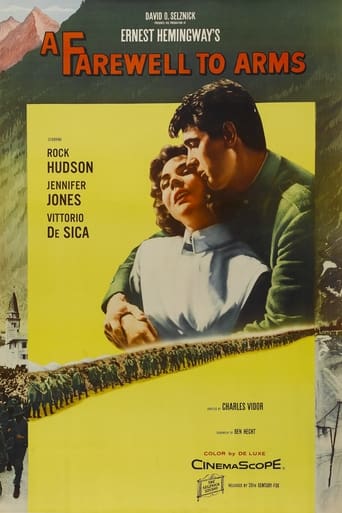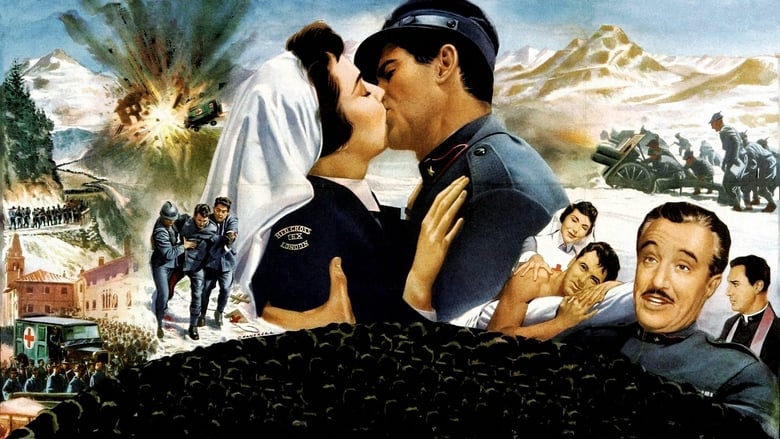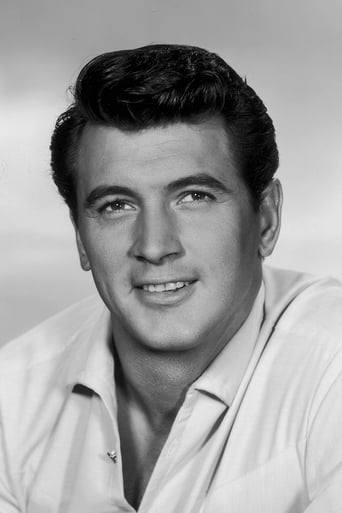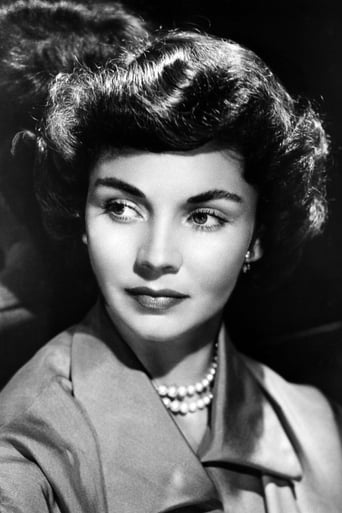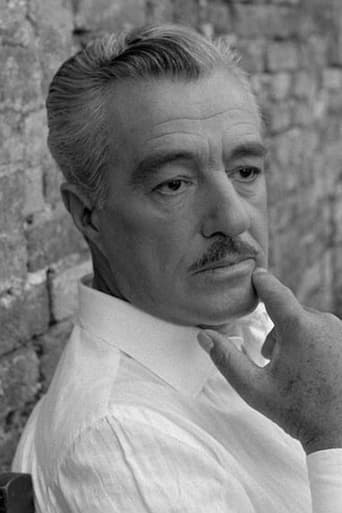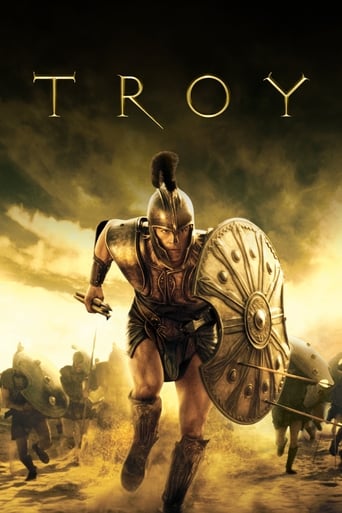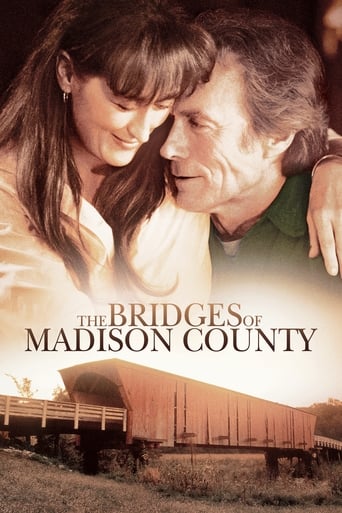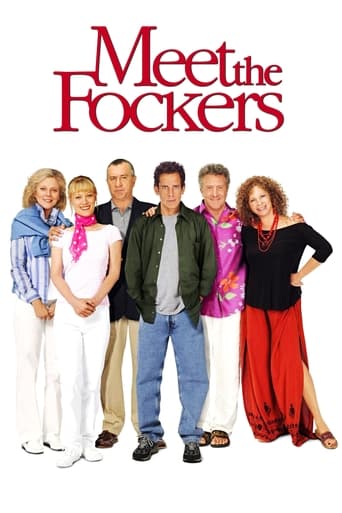A Farewell to Arms (1957)
An English nurse and an American soldier on the Italian front during World War I fall in love, but the horrors surrounding them test their romance to the limit.
Watch Trailer
Free Trial Channels
Cast


Similar titles
Reviews
Sorry, this movie sucks
Am I Missing Something?
This is a must-see and one of the best documentaries - and films - of this year.
One of the film's great tricks is that, for a time, you think it will go down a rabbit hole of unrealistic glorification.
This movie could have gone in a number of different directions because of Hemingway's writing style. I read the book about a week before watching the movie (niether by choice) so I had a pretty good idea of where and how each was different. If you've read the novel, you can understand how the director and actors would have had a hard time getting the characters across since Hemingway provides practically no emotion or description to his dialogue. He wanted to keep the meaning behind his characters words ambiguous to make it interesting. However, that leaves a few too many options when you're an actor and have to choose one emotion to convey. I didn't like how it came off, but I'll talk about that more later. The story doesn't transition from the book to the movie well. It's not a bad subject matter, but the story is famous for its symbolism rather more than anything else, and symbolism expressed with words is extremely hard to translate into images.Our two characters are a little hard to grasp since they were written in a way that reflected to aimlessness of the 1920's. Catherine in particular has a very romanticized perception of the war and her relationship with Frederic Henry. Frederic has an inverse view of things in which he carries a constant air of what is almost construable as apathy. Rock Hudson's sappier portrayal of him makes him seem like less of an unfeeling Bond-type and more of a star-crossed lover. There are very few other characters of significance. Rinaldi is probably the most prominent minor character, followed by the Milan nurses (Fergusson, and Van Campen), and the army priest. These parts feature the better acting performances of the movie. The scene where the priest remains in the burning hospital (which by the way was not in the book) was, in my opinion, the best scene of the movie. I don't know that Vittorio de Sica's portrayal of Rinaldi was Oscar worthy, but it was the most worthy of a nomination out of all the aspects of the film.The story ends up being driven by a number of things. Among them are Frederic and Catherine's relationship, Frederic recovering from his injury, the general tide of the war, the impending birth of Frederic and Catherine's child, and Frederic's desire to seek solace from the war after deserting. The story as a whole just sort of exists. It doesn't feel terribly alive, but it's functional and doesn't have any logic issues or inconsistencies.The acting from the lead roles felt pretty weak. They must be forgiven to an extent by Hemingway's ambiguous dialogue, but they certainly didn't give the best possible portrayals. When I was reading Catherine's rambling sentences in the book, I thought there might be some kind of coherence to it that would make it sound natural and hoped that an actress saying those same lines would provide that. Unfortunately, I was wrong. Jennifer Jones portrayal didn't have any more coherence than the static text and felt almost pathetically unrealistic. This even extended to her expressions like in the scene where Catherine is looking for Frederic among the advancing Italian force and she wears over exaggerated smiles and frowns. Rock Hudson's performance didn't really work for me because he seemed like he was trying to be too emotional while playing a character that has a hardened personality. Besides that, his emotions seemed kind of inconsistent and I didn't really buy that the character would have felt the way Hudson portrayed him to be. The supporting roles were all acted pretty well, though I don't think the talent was "wasted" on those parts since the supporting actors wouldn't have fit the lead roles.The overall feel of the movie felt a bit too romantic and not quite dark enough. Now, since that statement is coming from an action fan, it will sound biased. However, Earnest Hemingway felt much the same way upon the film's release, and was disappointed that it didn't portray the horrors that he saw as an ambulance driver in WWI. I wouldn't be surprised if major he wrote the story was a means to warn people to avoid war at all costs since it was so awful for him. If you've read and enjoyed the book, I guess it isn't a bad idea to watch this, but be warned that the tone changes drastically from book to movie. This is a much better pick as a romance movie than a war movie, though I doubt this will be at the top of your watchlist since it's kind of old. It stays pretty close to the book, which I know a lot of people can very particular about. To all prospective viewers, I'll say that it will likely come off as cheesy even if you love old movies or Earnest Hemingway's books. Overall Rating: 3.8/10.
Many critics didn't like this movie when it was first released and still don't if reviews on IMDb are anything to go by. I think that many films, especially from the late 50's and early 60's, took a critical hammering at the time because they seemed old-fashioned in the light of the great changes in cinema that were just starting. But now, over 50 years later, a film such as "A Farewell to Arms" can be evaluated more dispassionately, and as the film is actually set 40 years before it was made, it is now relatively free of the baggage of 1957 and Selznick's interference – I feel that it has far more merit than some would allow. The film follows Hemingway's novel with Rock Hudson's Lt Frederick Henry wounded while serving as an ambulance driver in Italy during WW1. While recuperating, he falls in love with an English nurse, Catherine Barkley, played by Jennifer Jones. After returning to the front, he is caught up in the retreat of the Italian army, and almost executed as a traitor. With as much danger from his own side as from the enemy he decides to desert to Switzerland, taking the now pregnant Catherine with him. Although they reach safety, tragedy awaits. The final scenes of this film are harrowing and haunting; they also put to rest any doubts about Rock Hudson's acting ability. A major criticism of the film is that Jennifer Jones at 38 was too old for the part. From my reading of the novel, Catherine Barkley is an indeterminate age, but she would seem to be older than the reviewer who claims she was 21. After all, she tells Lt Henry that she had been engaged for 8 years to someone who was killed on the Somme – surely Hemingway wasn't suggesting that she had become engaged when she was 13 years old. The affair is based on fact, details of which didn't emerge until after Hemingway's death. Hemingway was an ambulance driver in Italy, was wounded and did fall in love with his nurse. Her name was Agnes von Kurowsky, and she was actually an American. If you Google her name, there are quite a few of photographs of her; it's easy to see why Ernest fell for her – she was gorgeous. But she was also 7 years older than the 19-year-old Hemingway. They didn't run away to Switzerland together, in fact Hemingway was invalided back to America and never saw her again. She sent him a letter from Italy, " I am now and always will be too old, and that is the truth, and I can't get away from the fact that you are just a boy – a kid". He was dumped. It affected him deeply, and Agnes turns up in a number of his stories. "In Love and War", starring Sandra Bullock, is a well-made, but somewhat fictionalised account of the real story. So there you are, Jennifer Jones was 6 years older than Rock Hudson, probably not the ages the novel vaguely suggests, but I feel too much has been made of this aspect. Oh, just for the record, Jennifer Jones looks fantastic for an 'old lady' of 38.Technically there is much to admire – the scenes of the Italian army advancing and retreating are amazing, while Mario Nascimbene composed a lavish score with a recurring raindrop motif that is very effective within the context of the story. The novel was adapted into a play in 1930, which all the films have drawn material from. "A Farewell to Arms" was first filmed in 1932 starring Gary Cooper, and also appears in a slightly different form as one of the segments in "Hemingway's Adventures of a Young Man". But I feel that Selznick's 1957 film is the best version, and still has a lot to offer.
At first glance we don't have a winning hand with actor Rock Hudson. At second glance, however, we might be prone to reconsider many of the instances that surround that remarkable man, the tallest all time Hollywood star (1.96 cm). He had the misfortune not to receive an Oscar and die early from undiagnosed AIDS-related disease - which I personally disbelieve (where are his skin lesions?), and would retreat for a more humble malady such as stress and ill cured circulation problems. Whatever, the dully attention should be paid to that man who was consistently at the top box office in 1950s and 1960s together with Gable, Cooper, Wayne, etc; his movie "A Farewell to Arms" (1957) which I consider his best performance remained also unappreciated.The cream about all things connected with Rock Hudson is his relationship with director Douglas Sirk. American born Hudson (Winnetka, Illinois) had the strange fate to be launched into career by an émigré from Germany whom personally Goebbels had recruited for UFA studio in the 1930s. Detlef Sierck failed to become a Nazi but his son did, he was killed in WWII. Sirk fled with his Jewish wife to America and afterwards in the 1950s became an icon for underground cinema. Sirk never refrained from his German passport - maybe because of that he didn't receive Oscar in America - and in 1960s returned to Munich to teach classes at Hochschule für Fernsehen und Film. He had many students from which Rainer Werner Fassbinder (1945 – 1982) wrote a book about him. RWF was thought to have died of AIDS, by the way.To spend my matches honestly I should admit that instigation for these lines was given by couple of films that were distributed on DVD by Criterion Collection. These movies represented the duo Sirk - Hudson and there I found a half hour interview with Sirk himself taken by BBC journalist. Very useful stuff. Beside the fact that you see the director with no masks, further I got another dagger when I saw how much resemblance there was between the titular and no less than ... the great Charles Chaplin. The reader would excuse my comparison and I will talk no more except that I quickly revised my personal copy of Chaplin's "Autobiography" - a remarkable memoir and maybe the best written by someone who gave so much to film profession.Film industry is no battlefield. Despite the fact that many actors died as heroes while making divertissement for the crowd, the latter should reproach that they were millionaires. Funny thing how money both kills and gives life. Thank you!
I managed to avoid reading Hemingway in college. From what I could tell, along with his reductivist verbiage, he offered reductivist story lines. This film-transfiguration of AF2A into a simplistic, hoary, belabored narrative, does not disabuse me of my suspicions: A guy who barely sees action on the European battlefield (Hudson) falls in with a nurse (Jones), and they conspire to spend time together. Hemingway's big contribution to narrative was the romantic travelogue? Who knows what these two lovers have in common? They're so utterly generic. The movie never even brings up the utter irresponsibility it takes to abandon the front in favor of a lovers' adventure. The two have a season on the Alps, straight out of a J. Crew catalog. A number of better scenes are undermined by corny, conventional melodrama elsewhere. The movie keeps piling on tiny, improbable, unspecific details that fight the epic treatment. The cavernous hospital that Miss Barkley works in is virtually empty, so that no secondary plot line can possibly distract from the flimsy main story. Complicated, it is not. The camera work is better than average, with some amazing location photography. Director Charles Vidor (or maybe Huston?) does striking things in the first hour with an on-location, wide-screen camera... there are no second unit cop-outs. Vidor shows massive, panoramic tableaux, pans over a line of hundreds of soldiers trooping through the mountains; and then with a 90 degree swivel of his camera catches up with Hudson's ambulance barreling down on him. Hudson looks great. He's a better actor than he gets credit for, but with unshaped material like this, he can become very mechanical. Mercedes McCambridge plays a one-dimensional shrew. Jennifer Jones is puffy and miscast in the lackluster female lead. The movie is best when she's off screen. The love scenes are about as affecting as a coffee commercial.

